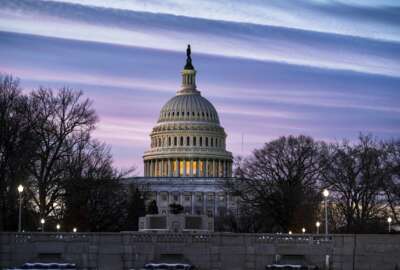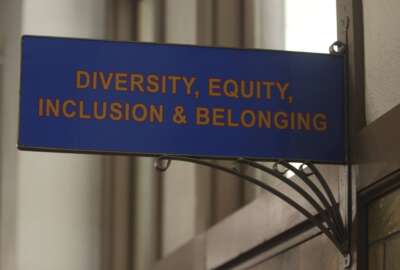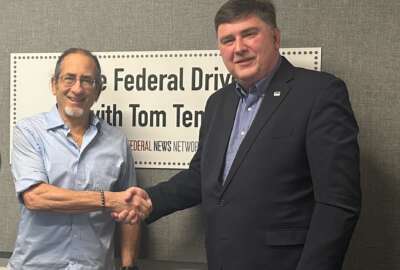VA employee promoted female vets’ needs in male-dominated health system
As the chief consultant for the Women Veterans Health Strategic Health Care Group at the Veterans Affairs Department, Patricia Hayes helped push for women's...
wfedstaff | April 17, 2015 3:48 pm

As the chief consultant for the Women Veterans Health Strategic Health Care Group at the Veterans Affairs Department, Hayes did it by simply recognizing the difference between male and female health needs.
Hayes is a finalist for a Service to America Medal in the Career Achievement category.
She told The Federal Drive with Tom Temin and Emily Kopp about how she has helped lead VA’s efforts to adopt best practices for female patients and institute a culture change at VA medical centers.
Federal News Radio asked the Sammies finalists to tell us a bit about themselves.
What three words best describe your leadership philosophy?
Provide vision to others, let your passion for the work be evident, always act with integrity.
What’s the best piece of advice (or words of wisdom) you’ve ever received and who gave it to you?
Over the years I have received much excellent mentoring and many good words of advice, but the most influential and confirming has been something I saw in a card shop kiosk: “Leap and the net will appear.”
Who is your biggest role model and why?
One of my biggest professional role models is Joan A. Furey, RN, MSN — the first director of the VA Center for Women Veterans. Appointed by President Clinton In 1995, Joan embodied the vision of enhancing recognition of women veterans and their contributions, by establishing the appropriate services and benefits for women in VA. Joan Furey was a warrior of compassion and integrity — having served as a surgical intensive care nurse in Vietnam — and then as a visionary leader.
My parents must be recognized as incredible role models who instilled in me (and my seven siblings) compassion, generosity of spirit, the morality of responsibility and hard work, and loving and respecting others. They supported me through many early activities which helped form my leadership abilities.
What’s the biggest challenge you’ve had to overcome (personally or professionally) and how did you overcome it?
My biggest challenge was not getting accepted to graduate school in psychology. I had been a straight-A student, valedictorian of my college class and so, was totally unprepared for receiving rejection letters from all graduate programs I applied to. I soon learned to see that luck and preparedness are close cousins. At first, I was only able to adjust and I went to work at the Navy Exchange, selling hardware on a Navy base, where I was promoted quickly to management — boosting my self-esteem!
Then came luck and surprise, as I was notified that I was an alternate selection at my first choice, Catholic University, and literally a week before classes began was told that if I could fund myself, move from Seattle and arrive on time, I could have the last slot which had suddenly opened up. With a lot of help from others I did arrive and proceed eventually to my Ph.D., and as I said, I have long appreciated the lesson that luck favors those who are prepared.
What’s the last thing you read and what’s next on your reading list?
I read for pure enjoyment and escape as well as non-fiction. I am reading “The Long Way Home,” by Gail Caldwell, which has impressed and captured me with the descriptions of the intensity and challenges of a friendship. Since living in D.C. I like the David Baldacci suspense books. It’s fun to read about activities all around where I work and live.
What’s your favorite bureaucratic phrase?
My favorite phrase is one I recite when faced with all the bureaucracy: “Maybe the hokey pokey IS what it’s all about.” I have it on my desk to keep me sane when inundated with the many bureaucratic requests we deal with.
Meet the rest of of the 2012 Sammies finalists
Copyright © 2025 Federal News Network. All rights reserved. This website is not intended for users located within the European Economic Area.





